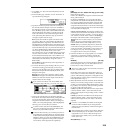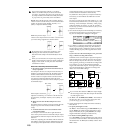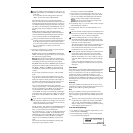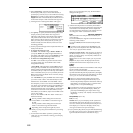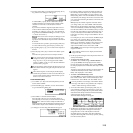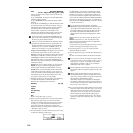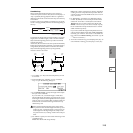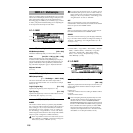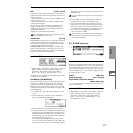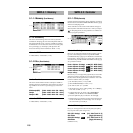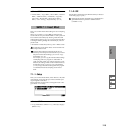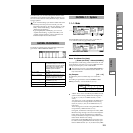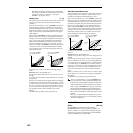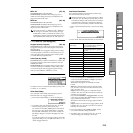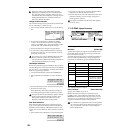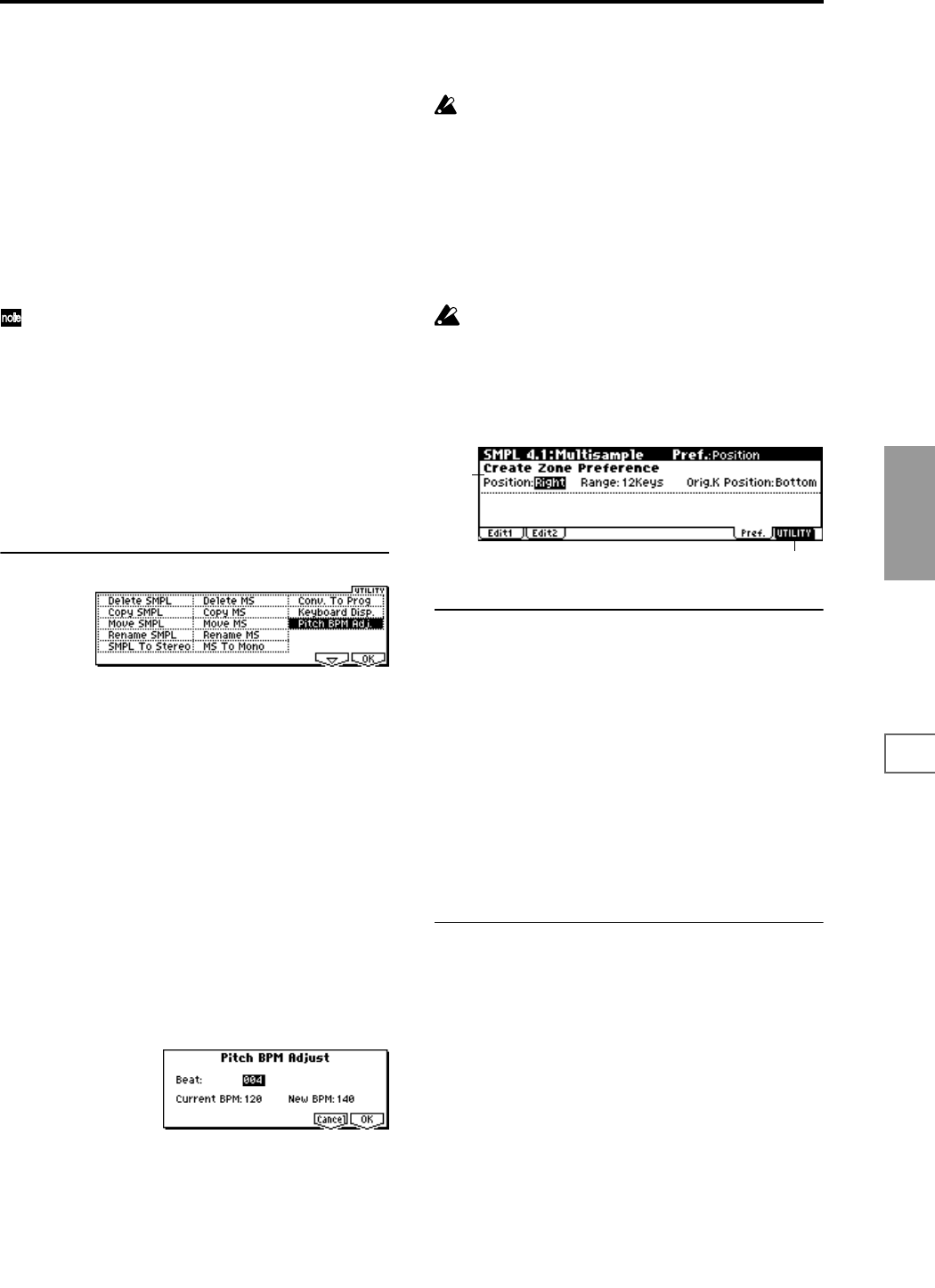
117
SMPL
1.1
2.13.14.15.15.27.1
Pitch [–64.00...+63.00]
Adjusts the playback pitch of the sample in one-cent steps.
0: The sample will sound at the original pitch when the orig-
inal key is played.
–: The pitch will be lowered. At a setting of –12.00 the pitch
will be one octave lower.
+: The pitch will be raised. At a setting of +12.00 the pitch
will be one octave higher.
You can also use “Pitch” to make fine adjustments in the
length of a rhythm loop. For example with a setting of
+12.00, the playback speed will be doubled, and the loop
playback time will be 1/2.
(☞PROG 2.1–2e Sample Parameter: Pitch)
The “Pitch BPM Adj.” lets you set the playback time in
terms of a BPM value (
☞4.1–2b).
Constant Pitch [Off, On]
On (checked): All notes in the zone of the index will sound
at the pitch of the original key. Use this setting when you
have sampled a drum sound or a rhythm loop, and want it
to always playback at the original pitch.
Off (unchecked): The pitch will change in semitone steps,
based on the original key. Use this setting when you have
sampled a musical instrument sound etc. and would like to
play it conventionally from the keyboard.
■ 4.1–2b: UTILITY
☞“Delete SMPL,” “Copy SMPL,” “Move SMPL,” “Rename
SMPL,” “SMPL To Stereo,” “Delete MS,” “Copy MS,”
“Move MS,” “Rename MS,” “MS To Stereo/MS To
Mono,” “Conv. To Prog,” “Keyboard Disp.” (1.1–3f)
For details on how to select the desired utility function, refer
to “PROG 1.1–1c: UTILITY.”
Pitch BPM Adj. (Pitch BPM Adjust)
This command sets the “Pitch” (4.1–2a) of the selected index
on the basis of a BPM value. Raising the pitch of sample
playback will increase the playback speed. Lowering the
pitch will slow down the playback speed. This can be used
to match the loop length etc. of the sample to a tempo of the
desired BPM value.
1 Use “SMPL” (4.1–1b) to select the sample that you wish
to edit.
2 From the Edit2 page “UTILITY,” choose “Pitch BPM
Adj.” to open the following dialog box.
3 Specify “Beat.” This is specified in quarter-note beats.
4 “Current BPM” will show the BPM value at the base key
(displayed in gray). This BPM value is calculated auto-
matically from the start address to the end address of the
sample (if looping is off) or from the loop start address to
the end address (if looping is on).
For example if the start and end address of the sample
are two seconds apart, the original key is specified as the
base key, and “Beat” is set to 4, “Current BPM” would be
120. If “Beat” is set to 2, the display would indicate “Cur-
rent BPM” as 60.
It is not possible for this display to exceed the range of
40–480.
5 In “New BPM,” specify the BPM value that will result
from the conversion of the “Current BPM” value.
6 To execute the Pitch BPM Adjust command, press the
[F8] (“OK”) key. To cancel, press the [F7] (“Cancel”) key.
When you execute this command, the “Pitch” (4.1–2a)
value will be set automatically. For example if you mod-
ify a quarter-note 120 BPM sample to 240 BPM, the
“Pitch” will be set to +12.00.
This calculation is performed within the TRITON Le’s
limits of precision. Minor discrepancies may occur in
the final BPM caclulation.
4.1–3: Pref. (Preference)
4.1–3a: Create Zone Preference
Here you can specify the default settings for indices that are
created using “CREATE” (4.1–1c, 1.1–1c). New indexes will
be created according the settings you specify here. You are
free to modify the settings of an index later. Also, when you
execute “INSERT” (4.1–1c), the “Position” setting specified
here will be used (
☞1.1–3b).
Position [Right, Left]
Range (Zone Range) [1key...127keys]
Orig.K Position (Original Key Position)
[Bottom, Center, Top]
(☞ 1.1–3b: However, the parameter name and value name
are shown differently.)
■ 4.1–3b: UTILITY
☞“Delete SMPL,” “Copy SMPL,” “Move SMPL,” “Rename
SMPL,” “SMPL To Stereo,” “Delete MS,” “Copy MS,”
“Move MS,” “Rename MS,” “MS To Stereo/MS To
Mono,” “Conv. To Prog,” “Keyboard Disp.” (1.1–3f),
“Pitch BPM Adj.” (4.1–2b)
4.1–3a
4.1–3b



